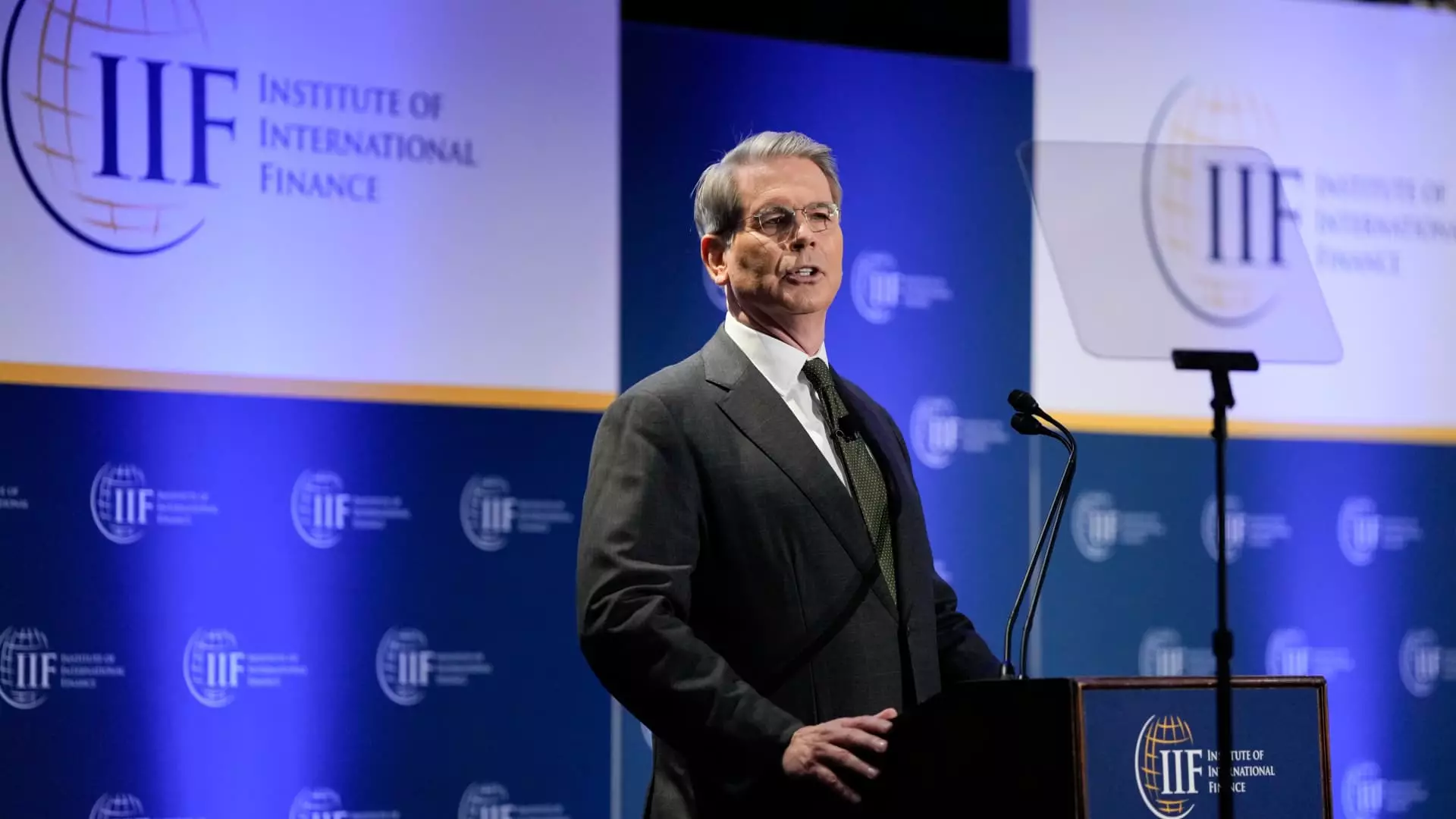The ongoing tussle between the United States and China over trade issues is more than just a political maneuver—it’s a reflection of deep-seated anxieties regarding global economic stability. Amidst this backdrop, Treasury Secretary Scott Bessent recently indicated that we may find ourselves at a pivotal crossroads. The phrase “big deal” encapsulates not just potential progress, but also a burgeoning sense of urgency. A critical examination of this sentiment reveals an opportunity marred by substantial risks, especially under the shadow of persistent tariff impositions.
Bessent’s declaration hints at optimism, yet it is essential to recognize that optimism can often sweep genuine concerns under the rug. Despite this “incredible opportunity,” we must ask ourselves: is this really about rebalancing, or merely a cosmetic adjustment in our approach to trade? The severe 145% tariffs imposed by the Trump administration have created an economic landscape rife with uncertainty—one that some fear could spiral into a crisis more dire than mere recession.
Ideological Blind Spots
When encapsulating the notion of a “beautiful rebalancing,” as lauded by influential figures such as Ray Dalio, a crucial portion of the conversation tends to be overlooked. The call for cooperation and adjustment sounds noble enough from the podium, but this discourse often sidesteps the harsh and unpalatable truths of market dynamics. Bessent warns that misguided policies from other nations have depleted America’s manufacturing capabilities and core supply chains. Yet, is this assertion itself entrenched in an ideological blind spot?
One must question whether focusing on China alone distracts from systemic issues rooted within the U.S. economy itself. While foreign policies and trade practices certainly play a role, we cannot ignore the fact that American businesses also need to adapt to changing global circumstances and innovate in ways that align with modern consumer needs. The optimism embodied in Bessent’s proposal is admirable, but it risks becoming ineffective if it fails to advocate for meaningful reforms that address underlying structural problems within the U.S. economy.
A Call for Institutional Reform
Bessent’s critique of international financial supports such as those provided by the World Bank and IMF is both bold and necessary. His argument that the World Bank continues to lend to nations like China—nations that have long since transcended the label of “developing”—is a compelling point that deserves thorough deliberation. Nevertheless, dismissing these institutions outright is simplistic. Rather than abandonment, a comprehensive reevaluation is what’s truly needed.
The presented notion that “the IMF and World Bank have enduring value” must prompt us to consider how these institutions can operate in a way that promotes equitable global economic growth while also prioritizing accountability. The pressing questions should be: What benchmarks can we establish to ensure that financial support achieves tangible outcomes? How can we ensure that financial assistance fosters economic independence rather than dependency?
Bessent’s idea to set firm graduation timelines for nations is essential, but it needs to extend beyond rhetoric. Such measures must be understood as part of a broader strategy aimed at fostering genuine economic growth and independence rather than just putting a Band-Aid on deeply-rooted disparities.
A Path Forward Together
Bessent’s insistence on collective rebalancing as an approach to the U.S.-China relationship is admirable. The notion that economic security is interlinked with solid partnerships abroad underscores a critical understanding of globalization’s intricate web. But to navigate this road effectively, there must be a recognition of the realities influencing today’s economic factors.
What is left unvoiced in such discussions is the need for U.S. policymakers to also exercise accountability at home by investing in innovation, education, and infrastructure. Economic policies must be designed to enhance not only our competitive edge but also to contribute to a healthier global economy.
Ultimately, the dialogue should extend beyond mere tariff reduction or even systemic reforms. It should focus on creating a future marked by fair trade practices, sustainability, and shared prosperity, where nations can thrive not just through defense of their interests, but through vibrant cooperation. The stakes have never been higher, and it is essential to approach this transition with both caution and an unwavering commitment to progress.

Leave a Reply